How to Choose the Best Savings Account for Your Goals | Compare Account Types
| By: Veronica Balderas, Financial Coach | |
| July 1, 2025 | clock icon 3.5-minute read |
Choosing the best savings account may be one of the smartest ways to grow your money. With so many types of savings accounts available—from high-yield to youth accounts—it’s important to find the one that fits your financial situation and goals. Whether you're just starting out, planning for a major purchase, or teaching your kids about money, the right credit union savings account may help you succeed.
Types of Savings Accounts: Which One is Best for You?
| Traditional Savings Accounts A traditional savings account is the most basic type of savings account and a great starting point when you’re looking to open a savings account with a low minimum deposit. It's perfect for beginners who want a safe place to store their money. These accounts typically offer lower interest rates but offer easy access to your funds and low minimum balance requirements. Best for: First-time savers, emergency funds, short-term goals |
|
| High-Yield Savings Accounts A high-yield savings account offers higher interest rates than traditional accounts. Many consider a high-yield savings account the best account for growing money without taking on risk. Having a higher interest rate means your money grows faster over time. While you might need to maintain a higher balance, the extra earnings make it worth considering if you have enough money to set aside. Best for: People with larger balances, long-term savers, those who want to maximize earnings |
|
| Youth and Teen Savings Accounts If you’re searching for the best savings account for your kids, youth and teen accounts are designed specifically for young savers. These accounts often have no monthly fees and lower minimum balances. Parents can help their children learn valuable money skills while building for their future. Best for: Children and teens with parents who want to teach financial responsibility |
|
| Certificates of Deposit (CDs) or Share Certificate CDs or share certificates require you to leave your money untouched for a set period (usually anywhere from 4 months to 60 months) in exchange for higher interest rates. They're great if you're looking for guaranteed returns and know you won't need the money right away, since there are early withdrawal penalty fees. Best for: Long-term savers, people with specific future goals, those who want guaranteed returns |
|
| Money Market Accounts Money market accounts combine features of savings and checking accounts. They typically offer higher interest rates than traditional savings accounts and may come with check-writing privileges or a debit card. This makes them perfect for savings goals where you want your money to grow but might need occasional access. Best for: Emergency funds, saving for a house down payment, wedding expenses, or major purchases planned within 1-3 years |
What to Look for When Choosing Your Account
Annual Percentage Yield (APY)
The APY is the rate your money will grow in a year. When your account compounds interest monthly, your interest is added to your balance earning interest on itself. Higher APYs mean more money in your pocket. Even a small difference in APY can add up to significant savings over time.
Fees and Charges
Look out for monthly maintenance fees, minimum balance fees, and transaction limits. The best savings account for you should have fees that fit your banking habits.
Minimum Balance Requirements
Some accounts require you to keep a certain amount of money in your account to avoid fees or earn the advertised interest rate. Make sure you can comfortably meet these requirements.
Access to Your Money
Consider how often you'll need to access your savings. Some accounts limit the number of withdrawals you can make each month, while others offer more flexibility. Some accounts have a "term" which is a set amount of time you must leave your funds in the account to avoid a penalty fee.
Benefits of a Credit Union Savings Account
Credit unions offer several advantages over traditional banks:
Better Rates: Credit unions typically offer higher interest rates on savings accounts because they are not driven by shareholder profits. Instead, earnings are returned to members through higher rates and lower costs.
Lower Fees: Compared to traditional banks, credit unions often charge fewer and lower fees. This means members keep more of their money, making saving easier.
Personal Service: Credit unions are known for providing friendly, member-focused service. Members are treated as individuals, with support tailored to their financial needs.
Community Focus: Many credit unions are deeply rooted in the communities they serve. When you bank with a credit union, you're supporting local community initiatives, small businesses, and financial education efforts in your community.
Take the First Step to your Savings Goals
The best savings account is one that aligns with your specific goals. If you're just starting out or do not have a clear savings goal yet, a traditional savings account is a great place to begin. If your goals are more defined, such as planning for a large purchase or building a long-term fund, a share certificate/CD or money market account may be a better fit thanks to their higher interest rates. Opening multiple accounts can also help you stay organized and track progress toward different financial goals.
Not sure where to start? As a Financial Coach, I’m here to help you map out a savings strategy that fits your life. Whether you’re saving for something specific or just want to build better habits, let’s create a plan together. Make an appointment today!
How much money do I need to open a savings account?
At Arrowhead Credit Union, you can open an Arrowhead Savings account with as little as $1.
How often does my interest compound?
Most savings accounts compound interest monthly, which means you earn interest on your interest from the previous month. This helps your money grow faster.
Can I have multiple savings accounts?
Yes! Many people find it helpful to have different savings accounts for different goals.
What's the difference between APY and APR?
APY (Annual Percentage Yield) is the amount of interest you will earn in a year on the money you have in your account. APR (Annual Percentage Rate) is the amount of interest you will pay on borrowed money, including fees.
Are my deposits safe at a credit union?
Yes! Credit union deposits are insured by the National Credit Union Administration (NCUA) for up to $250,000 per depositor, just like FDIC insurance at banks.
How do I choose between a high-yield savings account and a CD?
If you might need access to your money, choose a high-yield savings account. If you can leave your money untouched for the term, a CD typically offers higher returns.
 Veronica Balderas Financial Coach |
About the Author For the past five years, Veronica has provided members with the tools to create personalized financial plans that align with their goals. She offers information regarding budgeting, savings strategies, and spending plans to help members stay on track for long-term financial stability. Whether you're working to pay off debt, improve your credit score, or navigate a major financial change, Veronica provides practical advice. She focuses on building financial literacy and attacking complex challenges. Her hands-on approach ensures members are able to gain a better understanding of their finances and a clear plan for the future. |
|



